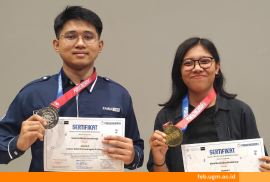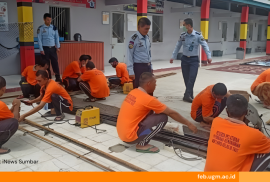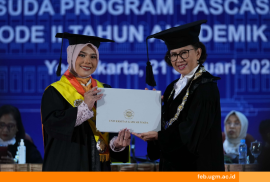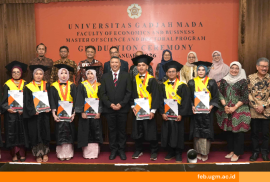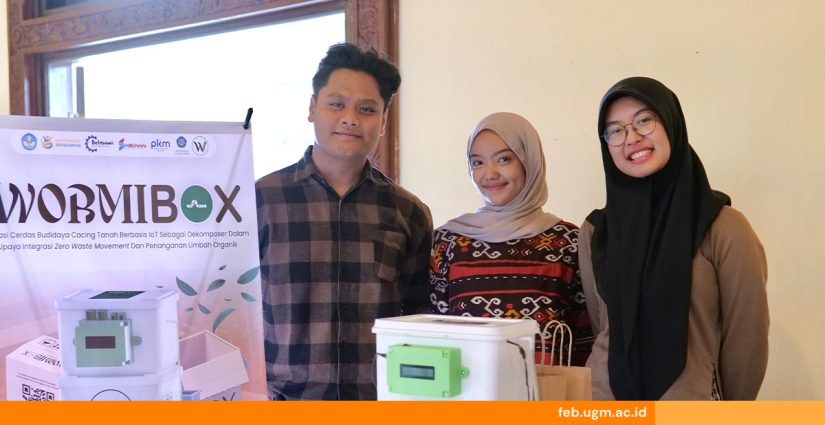
Waste remains a serious issue in Indonesia. Data from the Ministry of Environment and Forestry (KLHK) indicate that the country generates approximately 33.9 million tons of trash annually, with more than half originating from household organic waste. Improperly managed organic waste can produce methane gas, which has a far greater impact on global warming than carbon dioxide.
Driven by concern for this issue, Vidhyazputri Belva Aqila, an Accounting student from the Faculty of Economics and Business, Universitas Gadjah Mada (FEB UGM), class of 2023, initiated an innovation called WormiBox, an Internet of Things (IoT)-based organic waste processing device that uses earthworms to convert waste into economically valuable organic fertilizer.
In developing WormiBox, Belva collaborated with Azkal Anas Ilmawan (Nuclear Engineering, 2022), Fikriansyah Ridwan Pratama (Engineering Physics, 2023), Maulana Iqbal Pambudi (Animal Science and Industry, 2023), and Maureen Arsa Sanda Cantika (Geographical Information Systems, 2022). The team is part of the Student Creativity Program in Entrepreneurship (PKM-K) 2025, under the supervision of Dr. Ir. Nur Abdillah Siddiq, S.T., IPP.
Belva explained that WormiBox aims to empower communities to manage household waste independently. “Every year, the volume of household waste continues to increase, while waste management capacity remains limited. Through WormiBox, we want to help people process their waste on their own while gaining economic benefits from the results,” said Belva.
WormiBox operates by automatically monitoring temperature and humidity to maintain optimal conditions for worms during the decomposition process. Thanks to its IoT-based system, composting is faster and more efficient, producing high-quality organic fertiliser that can undergo multiple reuse cycles.
The WormiBox product is priced at around IDR 699,999 and targets homemakers, worm farmers, and environmental communities that practice sustainable living. “We hope WormiBox will not only be seen as a technological product but also as a social movement that inspires people to be more conscious about waste management,” Belva added.
Looking ahead, the team plans to collaborate with local governments, waste management communities, and environmental organizations to expand the implementation of WormiBox. They hope that this innovation will not only benefit households but also support decentralized waste management systems across various regions in Indonesia.
Reportase: Orie Priscylla Mapeda Lumalan
Editor: Kurnia Ekaptiningrum
Sustainable Development Goals





